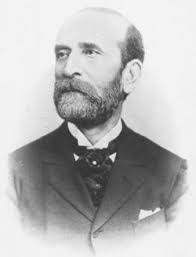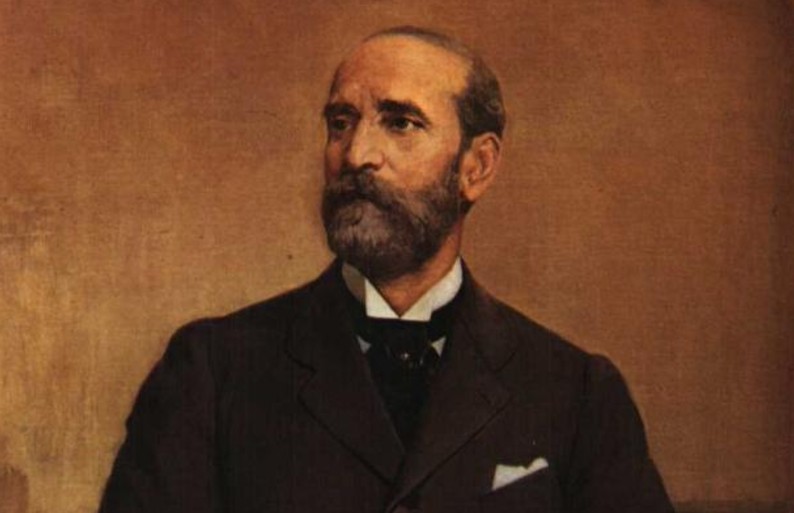One of the important personalities of Greece in the 19th century, Andreas Syngros was considered the most powerful man of his time, after King George I .
Andreas was born in the Stavrodromi (Pera) district of Istanbul on October 12, 1830. He studied at the famous school of Theophilos Kairis in Andros, later completing his studies in Ermoupolis of Syros in 1845.
Immediately after graduation he started working as an apprentice in the shop of the merchant Theodoros Rodokanakis in Ermoupolis. He quickly rose through the ranks and in 1849 became the manager of the newly formed company ‘Vouros, Damianos and Sia‘, which imported and exported products from the Ottoman Empire.

In 1863, he began to engage in banking and quickly formed a respectable fortune. His business almost went bankrupt in 1871 due to the economic crisis caused by the Franco-Prussian War of 1870-1871 and the sharp fall of Turkish bonds.
With a series of risky stock market manoeuvres, Syngros saved a large part of his fortune and together with Georgios Koronios, Stefanos Skouloudis and Antonios Vlastos, founded the Istanbul Bank.
In 1872, he returned to Athens and, together with Ioannis Skaltsounis, founded the General Credit Bank. After the integration of Thessaly and part of Epirus, Syngros together with other capitalists founded the Bank of Epirus. This merged only two years later with the National Bank of Greece.

Syngros left a mark on his name for his extremely generous charitable work, with his donations totally an estimated 5,000,000 drachmas. For his philanthropic work he was honoured with the highest medals of the Ottoman Empire and the Kingdom of Greece.
Andreas Syggros died in the early morning hours of February 13, 1899 from a heart attack.
“Such a crowd never accompanied the dead in modern Greece, but never has modern Greece ever had such a large funeral to bury, because ‘such men’ as one author very aptly said are not just individuals, but ‘are humanity in the slightest’!” wrote a newspaper the day after his funeral.
Sourced By: San Simera
